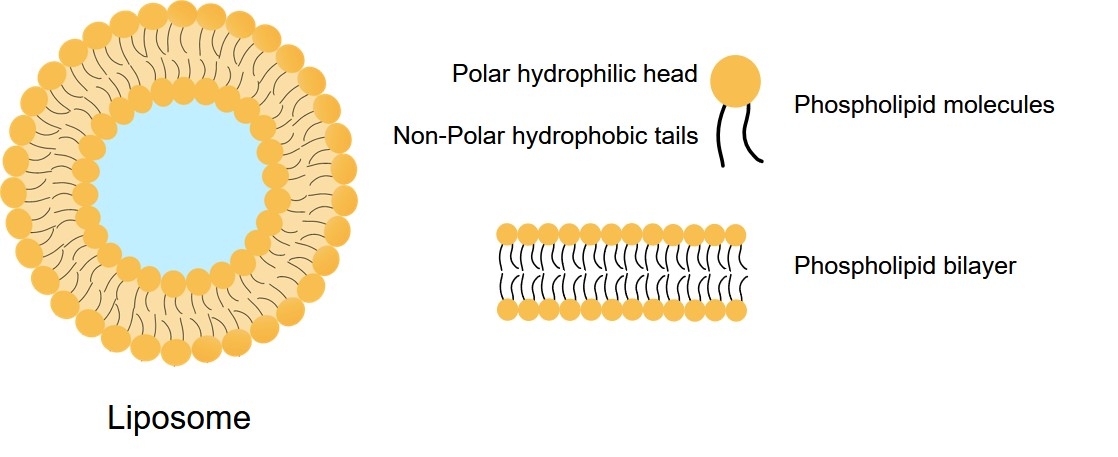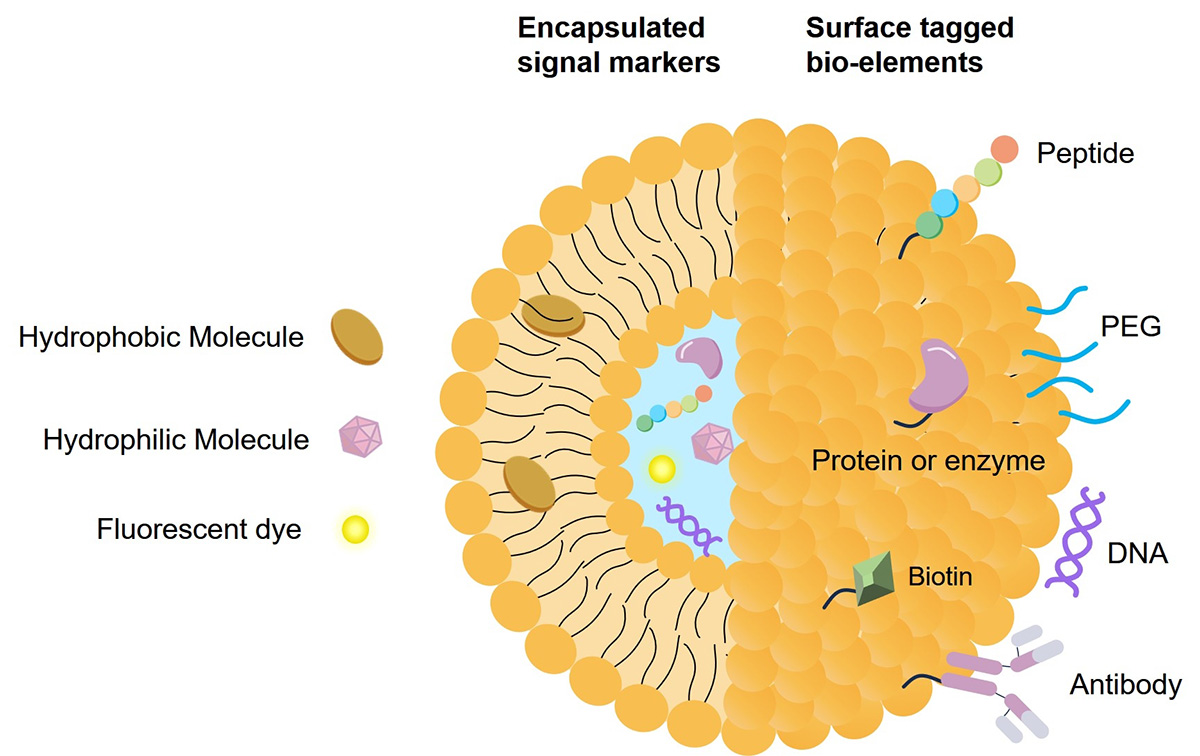Liposomes are a novel drug delivery system (NDDS) composed of bilayers that form spontaneously when phospholipids are dispersed in water. Liposomes serve as specialized delivery vehicles presenting significant advantages in enhancing the capabilities of active pharmaceutical ingredients (APIs). They can shield a drug from detection by the body’s immune system, mimicking biological membranes and endowing the drug more time to reach its intended destination. Besides, they can also help to dissolve high lipophilic drug molecules or regulate the pharmacokinetics and biodistribution of APIs, so as to reduce side effects and improve product safety profile.
Creative Biolabs focuses on providing liposome development services in the production of lipid-based nanoparticles to clients and partners in both the academic and industrial sectors. At present, we offer high-quality liposomes -based drug delivery services for all kinds of pharmaceutically active ingredients such as oligonucleotides, small molecules, and proteins, as well as vaccine antigens. Our professional technicians can not only save you precious time but also provide efficient and qualified products for customers all over the world.
Liposomes were first described by British hematologist Dr. Alec D Bangham FRS in 1961, which are spherical vesicles formed by phospholipids. These molecules have a hydrophilic head group and a hydrophobic ail group. The hydrophilic part is mainly phosphoric acid bound to a water-soluble molecule while the hydrophobic part contains two fatty acid chains with 10-24 carbon atoms and 0-6 double bonds in each chain. According to the size and quantity of bilayers, liposomes are divided into multilamellar vesicles with several lamellar phase lipid bilayers, the small unilamellar liposome vesicle (SUV, with only one lipid bilayer), the large unilamellar vesicle (LUV), and the cochleate vesicle. Based on different compositions, liposomes are classified as conventional liposomes (CL), pH-sensitive liposomes, cationic liposomes, long-circulating liposomes (LCL), and immuno-liposomes. In addition, according to different preparation methods, they are divided into reverse-phase evaporation vesicles (REV), French press vesicles (FPV), and ether injection vesicles (EIV). The liposomes can be used as a vehicle (delivery system) for the administration of nutrients and pharmaceutical drugs.
 Fig.1 Structure of liposome.
Fig.1 Structure of liposome.
Liposomes as delivery system can be loaded with drugs (such as vaccines, diagnostic agents, and other bioactive agents) to deliver drugs for various disease treatments. The bilayered vesicles serve as efficient carriers for drugs that have resulted in rapid development in the liposomal drug delivery system. Moreover, the site-avoidance and site-specific drug targeting therapy could be achieved by formulating a liposomal product, to achieve the goal to reduce the cytotoxicity of many potent therapeutic agents. Liposomes can be used as a therapeutic tool in many aspects including tumor targeting, genetic transfer, immunomodulation, skin, and topical therapy.
 Fig.2 Structural and design considerations for liposomal drug delivery.
Fig.2 Structural and design considerations for liposomal drug delivery.
Therapeutic applications of liposomes include site-avoidance delivery, site-specific targeting, intracellular drug delivery, sustained release drug delivery, intraperitoneal administration, and immunological adjuvants in vaccines. Liposomes as a carrier for a variety of drugs possess obvious advantages such as improved pharmacokinetics and biodistribution of therapeutic agents, thereby minimizing toxicity by their accumulation at the target tissue. To date, the liposomal delivery system technology has been used for the successful encapsulation of various drug molecules such as paclitaxel, acyclovir, tropicamide, arteether, chloroquine diphosphate, cyclosporine, and dithranol. Currently, about a dozen liposome-based drugs have been approved for clinical use, and more drugs are evaluated in various stages of clinical trials.
As one of the most competitive biotechnology companies in the world, Creative Biolabs has extensive expertise and experience in the drug delivery field. We are committed to providing custom liposomes-based drug delivery services with state-of-the-art platforms. Meanwhile, on the basis of timely communication and reporting, our staff will ensure high-efficiency service to meet the strict project schedule. If you are interested in our service, please do not hesitate to contact us for more details.
 For Research Use Only. Not For Clinical Use
For Research Use Only. Not For Clinical UseSupports
Online Inquiry